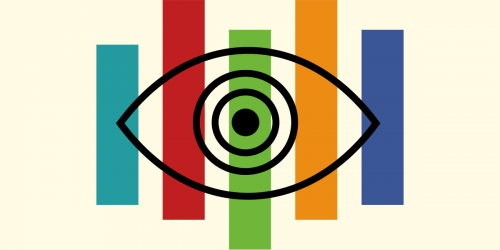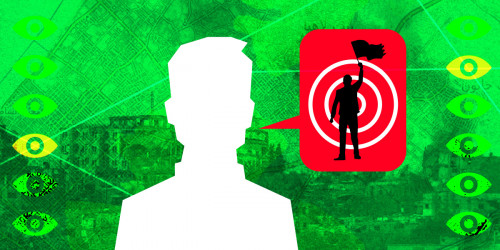This is Part I of a two-part series on EFF’s comments to the International Criminal Court Office of the Prosecutor (OTP) about its draft policy on cyber-enabled crimes.
As human rights atrocities around the world unfold in the digital age, genocide, war crimes and crimes against humanity are as heinous and wrongful as they were before the advent of AI and social media.
But criminal methods and evidence increasingly involve technology. Think mass digital surveillance of an ethnic or religious community used to persecute them as part of a widespread or systematic attack against civilians, or cyberattacks that disable hospitals or other essential services, causing injury or death.
The International Criminal Court (ICC) Office of the Prosecutor (OTP) intends to use its mandate and powers to investigate and prosecute cyber-enabled crimes within the court's jurisdiction—those covered under the 1989 Rome Statute treaty. The office released for public comment in March 2025 a draft of its proposed policy for how it plans to go about it.
We welcome the OTP draft and urge the OTP to ensure its approach is consistent with internationally recognized human rights, including the rights to free expression, to privacy (with encryption as a vital safeguard), and to fair trial and due process.
We believe those who use digital tools to commit genocide, crimes against humanity, or war crimes should face justice. At the same time, EFF, along with our partner Derechos Digitales, emphasized in comments submitted to the OTP that safeguarding human rights must be integral to its investigations of cyber-enabled crimes.
That’s how we protect survivors, prevent overreach, gather evidence that can withstand judicial scrutiny, and hold perpetrators to account. In a similar context, we’ve opposed abusive domestic cybercrime laws and policing powers that invite censorship, arbitrary surveillance, and other human rights abuses
In this two-part series, we’ll provide background on the ICC and OTP’s draft policy, including what we like about the policy and areas that raise questions.
OTP Defines Cyber-Enabled Crimes
The ICC, established by the Rome Statute, is the permanent international criminal court with jurisdiction over individuals for four core crimes—genocide, crimes against humanity, war crimes, and the crime of aggression. It also exercises jurisdiction over offences against the administration of justice at the court itself. Within the court, the OTP is an independent organization responsible for investigating these crimes and prosecuting them.
The OTP’s draft policy explains how it will apply the statute when crimes are committed or facilitated by digital means, while emphasizing that ordinary cybercrimes (e.g., hacking, fraud, data theft) are outside ICC jurisdiction and remain the responsibility of national courts to address.
The OTP defines “cyber-enabled crime” as crimes within the court’s jurisdiction that are committed or facilitated by technology. “Committed by” covers cases where the online act is the harmful act (or an essential digital contribution), for example, malware is used to disable a hospital and people are injured or die, so the cyber operation can be the attack itself.
A crime is “facilitated by” technology, according to the OTP draft, when digital activity helps someone commit a crime under modes of liability other than direct commission (e.g., ordering, inducing, aiding or abetting), and it doesn’t matter if the main crime was itself committed online. For example, authorities use mass digital surveillance to locate members of a protected group, enabling arrests and abuses as part of a widespread or systematic attack (i.e., persecution).
It further makes clear that the OTP will use its full investigative powers under the Rome Statute—relying on national authorities acting under domestic law and, where possible, on voluntary cooperation from private entities—to secure digital evidence across borders.
Such investigations can be highly intrusive and risk sweeping up data about people beyond the target. Yet many states’ current investigative practices fall short of international human rights standards. The draft should therefore make clear that cooperating states must meet those standards, including by assessing whether they can conduct surveillance in a manner consistent with the rule of law and the right to privacy.
Digital Conduct as Evidence of Rome Statute Crimes
Even when no ICC crime happens entirely online, the OTP says online activity can still be relevant evidence. Digital conduct can help show intent, context, or policies behind abuses (for example, to prove a persecution campaign), and it can also reveal efforts to hide or exploit crimes (like propaganda). In simple terms, online activity can corroborate patterns, link incidents, and support inferences about motive, policy, and scale relevant to these crimes.
The prosecution of such crimes or the use of related evidence must be consistent with internationally recognized human rights standards, including privacy and freedom of expression, the very freedoms that allow human rights defenders, journalists, and ordinary users to document and share evidence of abuses.
In Part II we’ll take a closer look at the substance of our comments about the policy’s strengths and our recommendations for improvements and more clarity.










